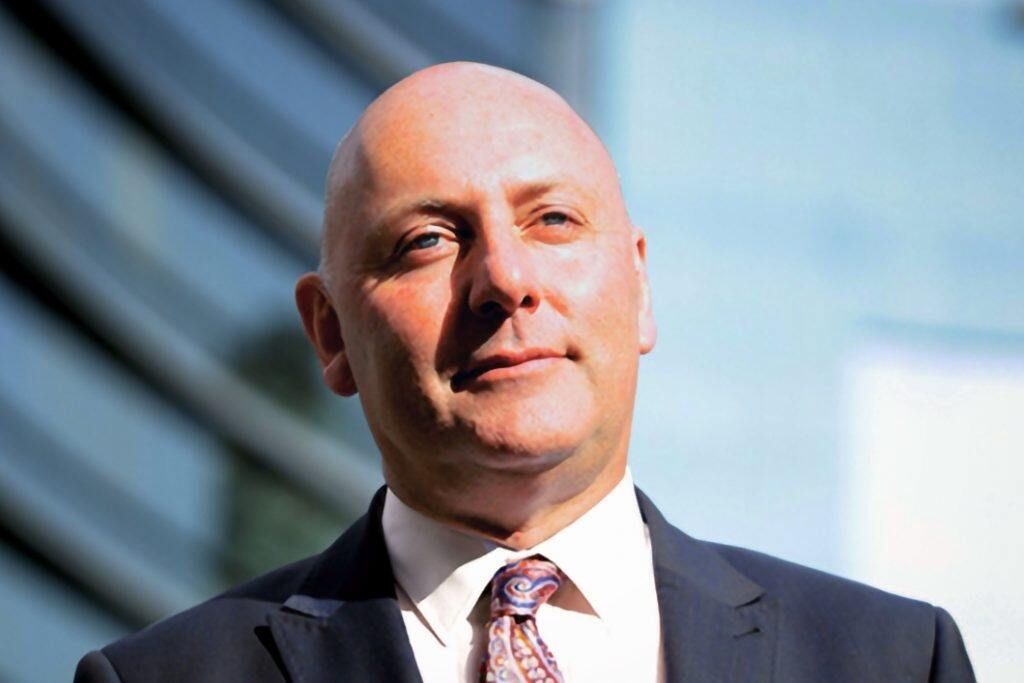By helping businesses to seriously question the value of all the goods and services they use and the daily choices they make, UNE PhD – Innovation candidate, David Hill, hopes to demonstrate the power in their hands.


Implementing sustainability measures in your business – large or small – can be daunting and confusing, especially if you are just setting out on the road to a greener operation. But persevere and it can have a profound impact on staff morale, customer satisfaction, your bottom line and, best of all, the health of our planet.
UNE Doctor of Philosophy – Innovation (PhD.I) candidate David Hill is committed to helping Australian businesses become more sustainable. He’s developing a framework (called the Business Sustainability Hierarchy) that he’s about to trial as part of his research. It steps owners and managers through a systematic process of introducing and assessing their sustainability decisions.
“Larger organisations are now introducing sustainability plans and regularly reporting on their sustainability efforts, but many smaller organisations don’t know where to begin,” David says. “The hierarchy I am developing encourages a holistic approach; it shows the real things that a business can do right now and ranks them according to their sustainability outcomes.”
“Each of us in the business world make decisions every day that impact on the world around us. Decisions like how long the furniture we buy is likely to last and whether it can be recycled or re-used, whether our equipment has in-built obsolescence and the distances raw materials need to travel from. And these decisions are cumulative. We can start with something do-able and then, over time, move to a place where we might even transform our business.”
The journey begins with two fundamental questions: ‘Is there a better way?’ and ‘Is one alternative better for the world than another?’.
Depending on the size of the organisation, such decisions are generally made by business owner-operators or managers, but David believes that decision-making should be devolved to the worker level, so they become part of the business of reducing waste and developing new processes.
“A lot of this is not magic, it’s introducing systems that are already in existence,” he says. “There’s a lot of work that has already been done in terms of life-cycle analysis and the environmental impact of products. It’s about looking at all the components together – what we do and how we make decisions – and positioning that as part of regular planning.”
While some businesses are already embedding the United Nations General Assembly’s 17 Sustainable Development Goals (SDGs) in their operations, David believes it need not be that complex or ambitious. “SDGs try to achieve an extraordinary amount of things – from overcoming societal inequity, to peace and justice,” he says. “In some ways, that is going too far for an organisation setting out on the sustainability journey. Yes, an organisation needs to see its role in helping to achieve bigger outcomes, and all those goals are important, but what happens inside most organisations is that such responsibilities are broken into individual planning areas.
“My hierarchy concentrates on the resources that a business has at hand and focuses on individual goods or products. It’s not inconsistent with SDGs, but it’s not driven by them either.”
Valerie Dalton from UNE’s Business School agrees that SDGs can be a little overwhelming but are not impossible for people to engage with, as David is demonstrating.
“There are 169 subsets of the SDGs, covering topics as lofty as eliminating poverty, right down to promoting partnerships,” she says. “David’s work actually makes a contribution to many goals, including those on sustainable production and consumption, climate action, and even contributing to sustainable cities and communities.
“If we can find tools that help businesses to start thinking positively about what they can do, we can work together towards action. Small businesses comprise 90% of the world’s businesses, so they are critical to meeting the SDGs, and tools that make action accessible will be invaluable in helping them do so.”
David’s hierarchy works by enabling business people to undertake sustainability initiatives in a sequential way and according to their circumstances. Together, if every organisation moves up the hierarchy, by taking on more challenging options over time, much can be achieved.
“Every organisation can do things right now,” David says. “Very often in the business world we leave it up to the market to put a value on things, but some of those goods and services are not good or valuable and may help to destroy the world in which we live. My hierarchy deliberately questions the notion of value and reminds decision-makers that we need to think consciously about each choice we make and be accountable for those decisions. Then we can all be part of bigger change.”





































